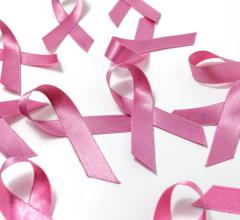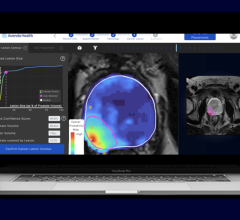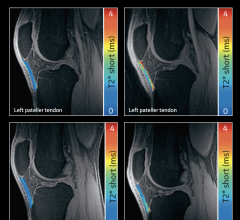June 24, 2015 - A nationwide study published in the Journal of the American College of Cardiology identified current frequent barriers to cardio-oncology services in the United States. According to the study, many hospital training programs have no formal training or services in cardio-oncology, and a lack of national guidelines and funding also creates barriers.
The ACC conducted the survey to determine the existing practices and current needs in this area. Study results could also help plan for a cardio-oncology section that would fill gaps in resources and allow specialists to share best practices, develop educational tools and practice standards, design training programs and advocate for the specialty.
Cardio-oncology as a field includes both cardiology and oncology specialists working together across all aspects of cardiovascular risk determination, prevention and treatment, starting at cancer diagnosis and continuing throughout survivorship. Studies have shown that many cancers and heart disease are linked through common risk factors and prevalence in the same age population. Also, cancer treatments can lead to cardiovascular health problems, including increased risk of cardiac dysfunction, heart failure, arrhythmias, valvular heart disease, accelerated atherosclerosis and pericardial disease.
The ACC Early Career Section conducted a survey in May 2014 of cardiology division chiefs and cardiovascular fellowship program training directors to evaluate the current state of cardio-oncology services, practices and opinions. Of the 106 respondents, more than 70 percent felt the cardiovascular implications of cancer treatments were a very important consideration in the cancer patient treatment continuum. Sixty-five percent thought access to consultants with specialized training would provide an advantage in caring for cancer patients suffering cardiovascular complications.
However, only 35 percent of centers surveyed included cardio-oncology services in their pre-operative consultation services managed by general cardiology, and only 27 percent of centers had an established, specialized cardio-oncology service with multiple clinicians. Sixteen percent had a single cardiologist with expertise in treating cancer patients, and 12 percent had no cardio-oncology services but planned to add them within a year.
Almost half of respondents said their programs offered no formal training in cardio-oncology, with a majority of the other half offering exposure during regular rotations. For 44 percent of programs surveyed, the reason for no or limited training was both a lack of national guidelines in cardio-oncology and a lack of funding.
But the need is there. A significant number of those surveyed reported they did not feel confident in dealing with cardiovascular care specific to cancer patients, and gave themselves only an average rating when asked about their level of understanding of the impact of holding or stopping cancer treatments on cancer outcomes.
Cardiologists similarly rated their oncology peers, giving them an average rating on their understanding of the impact of slow or inadequate cardiology assessment in the development of cardiovascular complications in cancer patients.
"Despite the common belief that cancer patients with treatment-related cardiovascular issues would greatly benefit from a specialized team devoted to the cardio-oncology field and a significant number of cancer patients experiencing treatment related cardiovascular issues, we are lacking the proper resources to care for these patients," said Ana Barac, M.D., Ph.D., lead author of the study and director of the cardio-oncology program at MedStar Heart and Vascular Institute in Washington. "A newly formed American College of Cardiology section dedicated to filling this gap will give physicians in the field a forum to discuss best practices and work together to develop methods for training more physicians in providing the best possible care for these unique patients."
For more information: www.acc.org


 July 25, 2024
July 25, 2024 








